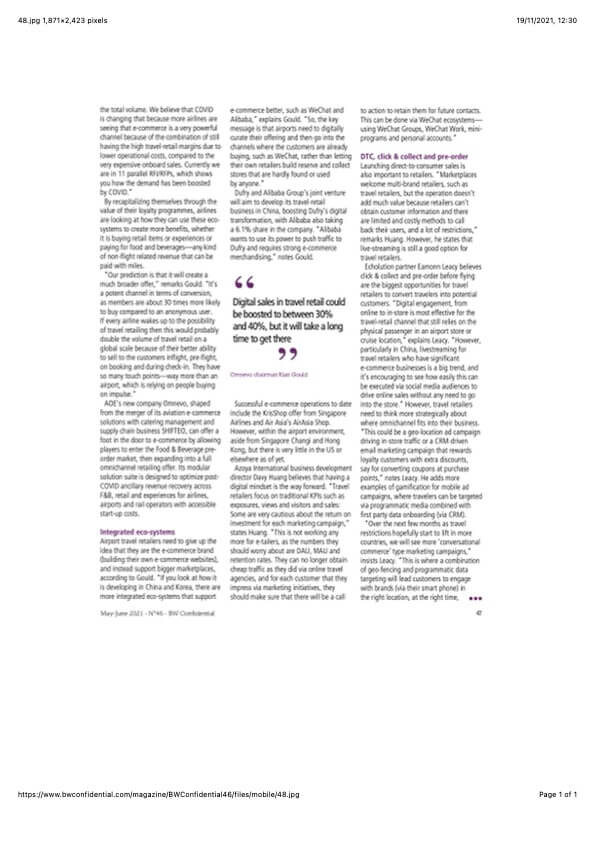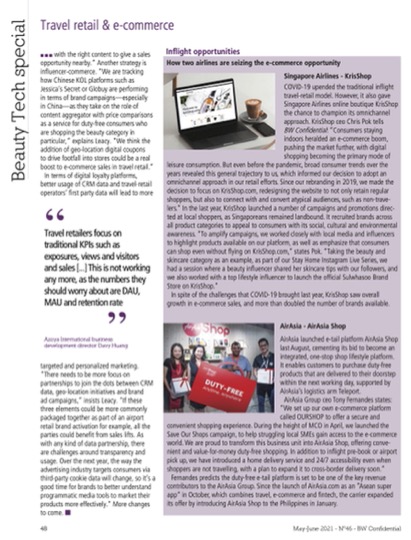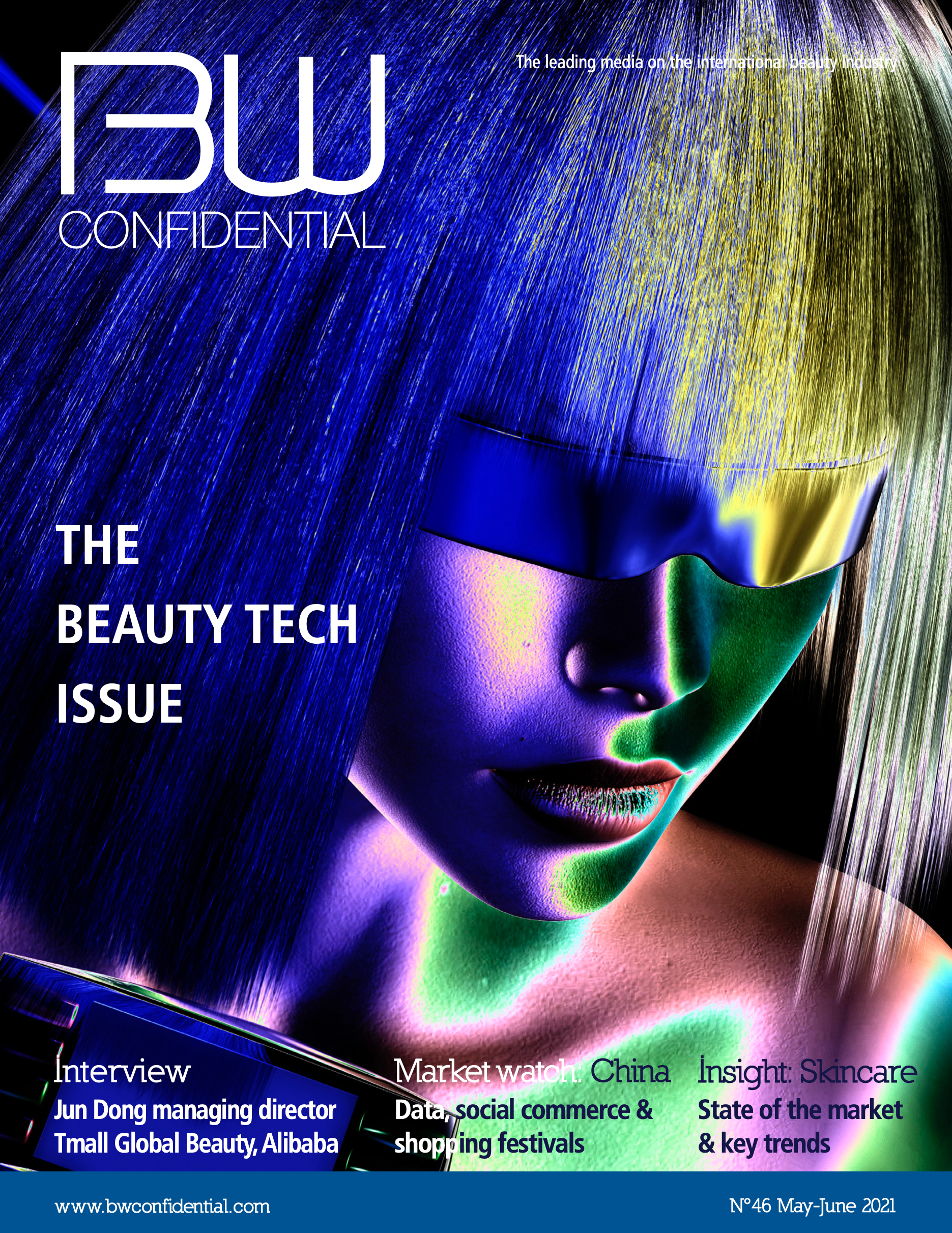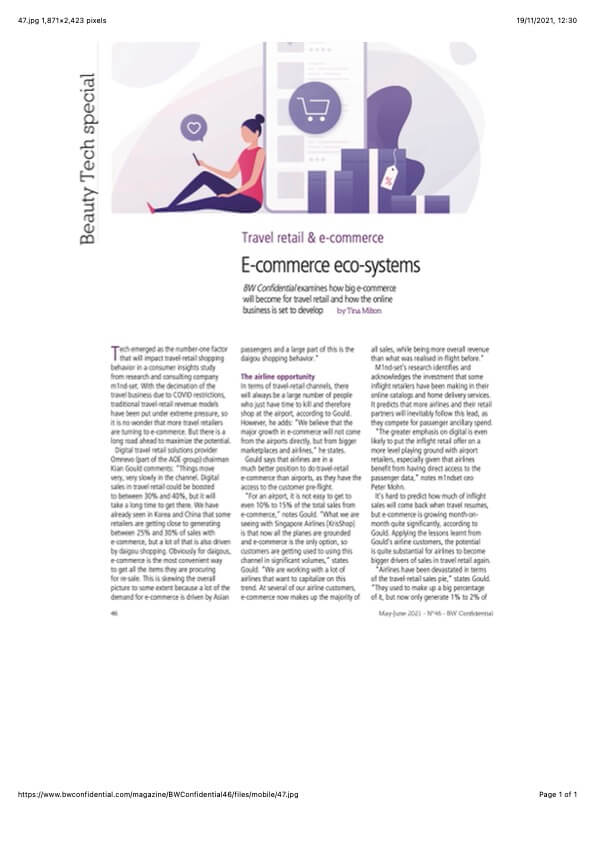The pandemic resulted in more travel retailers look to e-commerce to boost their business – both online and in-store. As e-commerce and omnichannel strategies continue to evolve for the travel retail sector, several key conversion opportunities are available for retailers who are thinking about how to grow their digital marketing activity.
Here, Echolution offers some commentary on pressing questions such as: what are the main forms of e-commerce for the travel-retail channel – click & collect, travel retailer online stores for travellers, live-streaming via social-commerce etc, and how can travel retailers better incorporate these offers into their business and what needs to change?
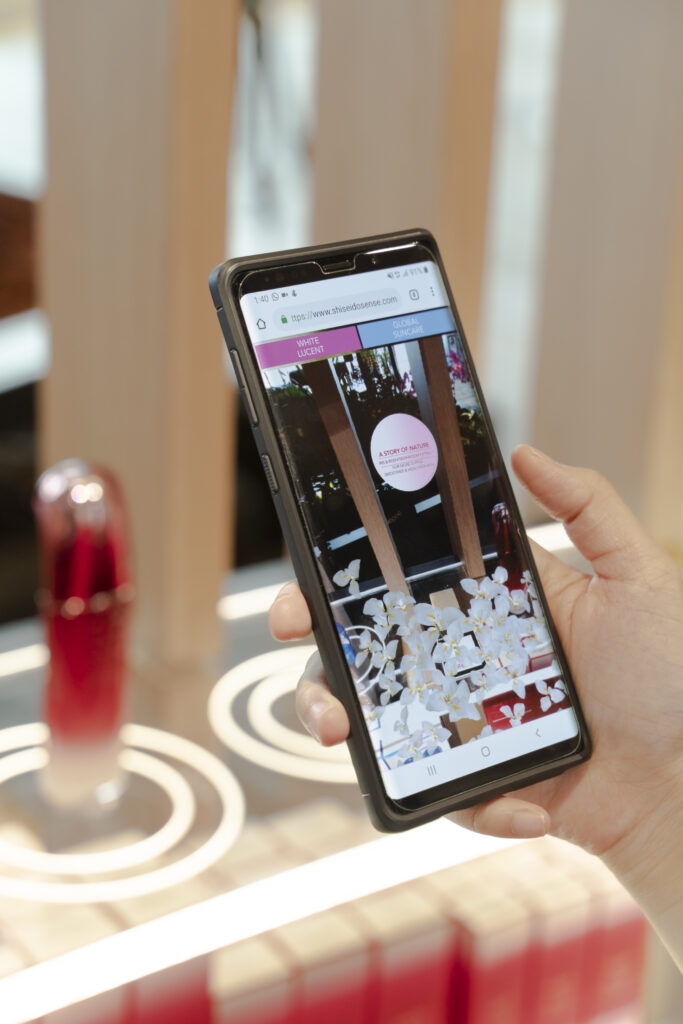
Maximising conversion in-store
Click & collect and pre-order before flying are the biggest opportunities for travel retailers to maximise converting travellers into potential customers. We think digital engagement from online to in-store is the most effective for the travel retail channel that still relies on the physical passenger in an airport store or cruise location. However, particularly in China, livestreaming for travel retailers who have significant e-commerce businesses is a big trend and it’s encouraging to see how easily this can be executed via social media audiences to drive online sales without any need to go into the store.
Geo-location marketing
Travel retailers need to think more strategically about where omnichannel fits into their business – whether that’s a geo-location ad campaign driving in-store traffic or a CRM-driven email marketing campaign, that rewards loyalty customers with extra discounts, say for converting coupons at purchase points.
We are also seeing more examples of gamification for mobile ad campaigns, where we can target travellers via programmatic media combined with 1st party data onboarding (via CRM).
Over 2021 and into 2022 and as travel restrictions have lifted around the world, we will see more ‘conversational commerce’ type marketing campaigns. This is where a combination of geo-fencing and programmatic data targeting will lead customers to engage with brands (via their smart phone) in the right location, at the right time, with the right content to result in a sales opportunity nearby.
A lot of the digital ad campaign briefs Echolution has run for travel retail brands are designed to drive footfall into key tourist flagship stores. For example, a Middle East customer engagement campaign for a major London department store group, that asked respondents about their handbag preferences as they searched for gifts ahead of Ramadan. This type of geo-location digital marketing will become more prevalent as people travel overseas and return to physical destination stores, but their digital shopping habits have become accelerated due to the pandemic.
Influencer-commerce
We are tracking how Chinese KOL platforms such as Jessica’s Secret or Globuy X are performing in terms of brand campaigns – especially in China – as they take on the role of content aggregator with price comparisons as a service for duty free consumers who are shopping the beauty category in particular. We think the addition of geo-location digital coupons to drive footfall into stores could be a real boost to e-commerce sales in travel retail.
Digital loyalty platforms
Better usage of CRM data and travel retail operators’ 1st party data will lead to more targeted and personalised marketing. There needs to be more focus on partnerships in travel retail to join the dots between CRM data, geo-location initiatives and brand advertising campaigns. If these three elements could be more commonly packaged together as part of an airport retail brand activation for example, all the trinity parties could benefit from sales lifts.
As with any kind of data partnership, there are challenges around transparency and usage. Over the next year or so the way the advertising industry targets consumers via third-party cookie data will be changing, so it’s a good time for brands to have a better understanding of using programmatic media tools to market their products more effectively.
Ad campaigns drive e-commerce sales
Echolution’s digital ad campaign for the Liberty Beauty Advent Calendar (2019) worked well as it targeted key global shopper demographics (Chinese, Korean, Japanese and US luxury consumers) in the run up to the Christmas gifting period, which created a high level of online engagement across the brand’s target audience digital media. It also resulted in a significant uplift in e-commerce sales from overseas customers, according to the retailer.
Echolution sees a lot of digital engagement potential for travel retail brands to develop their AR capabilities and integration to drive e-commerce sales – especially in beauty.
With the shift to online purchases instead of visiting physical stores, came virtual colour matching for cosmetics. One example was when L’Oréal partnered with Lotte Duty Free to launch the Dream Face virtual try-on app, to give travellers personalised online discovery for brands such as Lancôme, Giorgio Armani, L’Oréal Paris and Urban Decay. This has now been embraced by more cosmetics brands as a conversion driver back in-store.
The Face by Holition platform, developed by digital agency Beauty by Holition has launched in travel retail in partnership with consultancy Harper Dennis Hobbs and uses AI and augmented reality to help shoppers test beauty products in a hands-free manner. Consumers will be able to test the cosmetics on their own devices or through the use of in-store tablets, while store staff will still be able to help, inform and share brand knowledge. The system has already been used by leading make-up brands such as Kiko Milano, Charlotte Tilbury, Maxfactor and Rimmel on their own platforms.
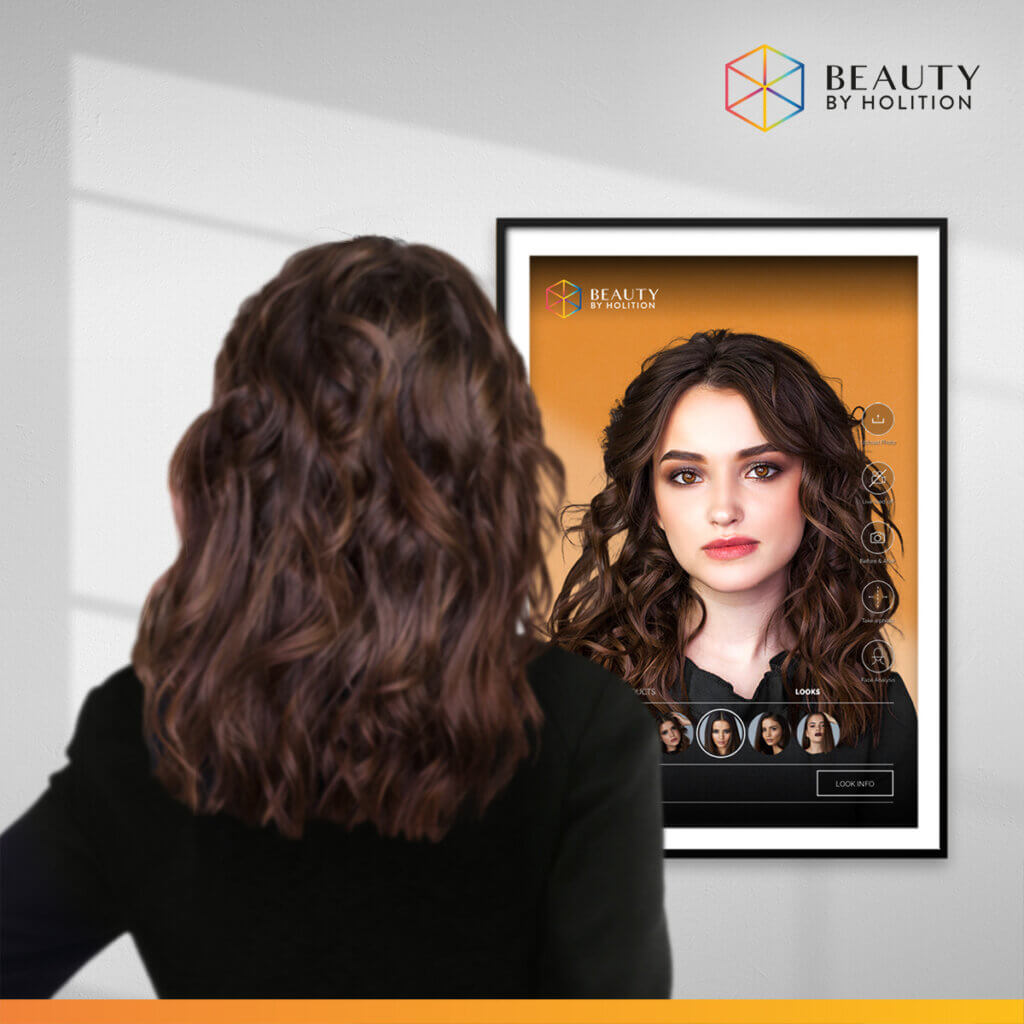
The Dream Face and Face by Holition platforms work across online and off-line retail channels and by utilising both brand and retail partners’ CRM data to target customers, there are opportunities to leverage the AR engagement at point of sale. This could be further enhanced by adding a loyalty mobile coupon specific to the virtual try-on product that has been digitally sampled.
Echolution was featured in the May issue of BW Confidential, a special edition dedicated to the Beauty Tech conference.
